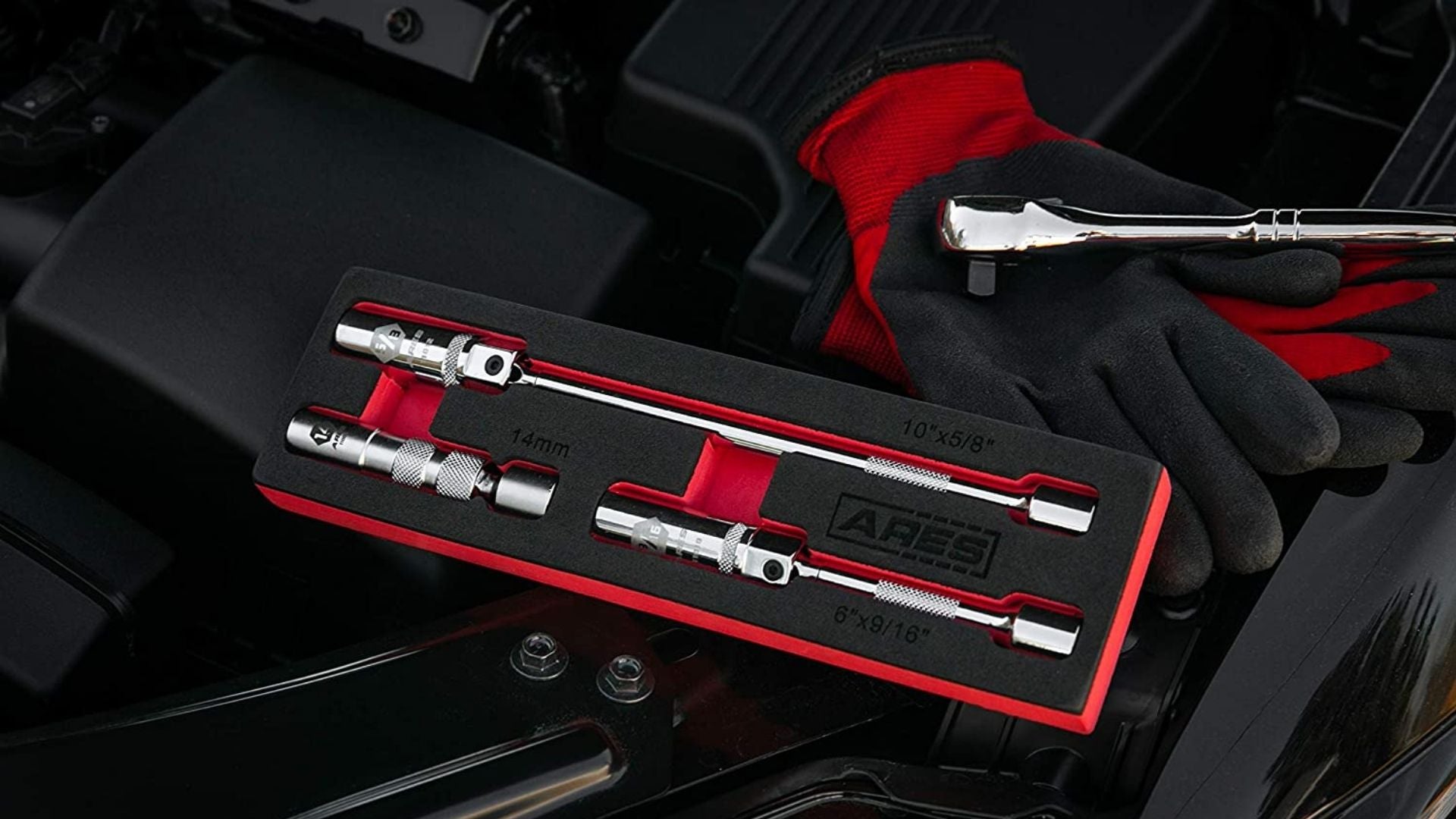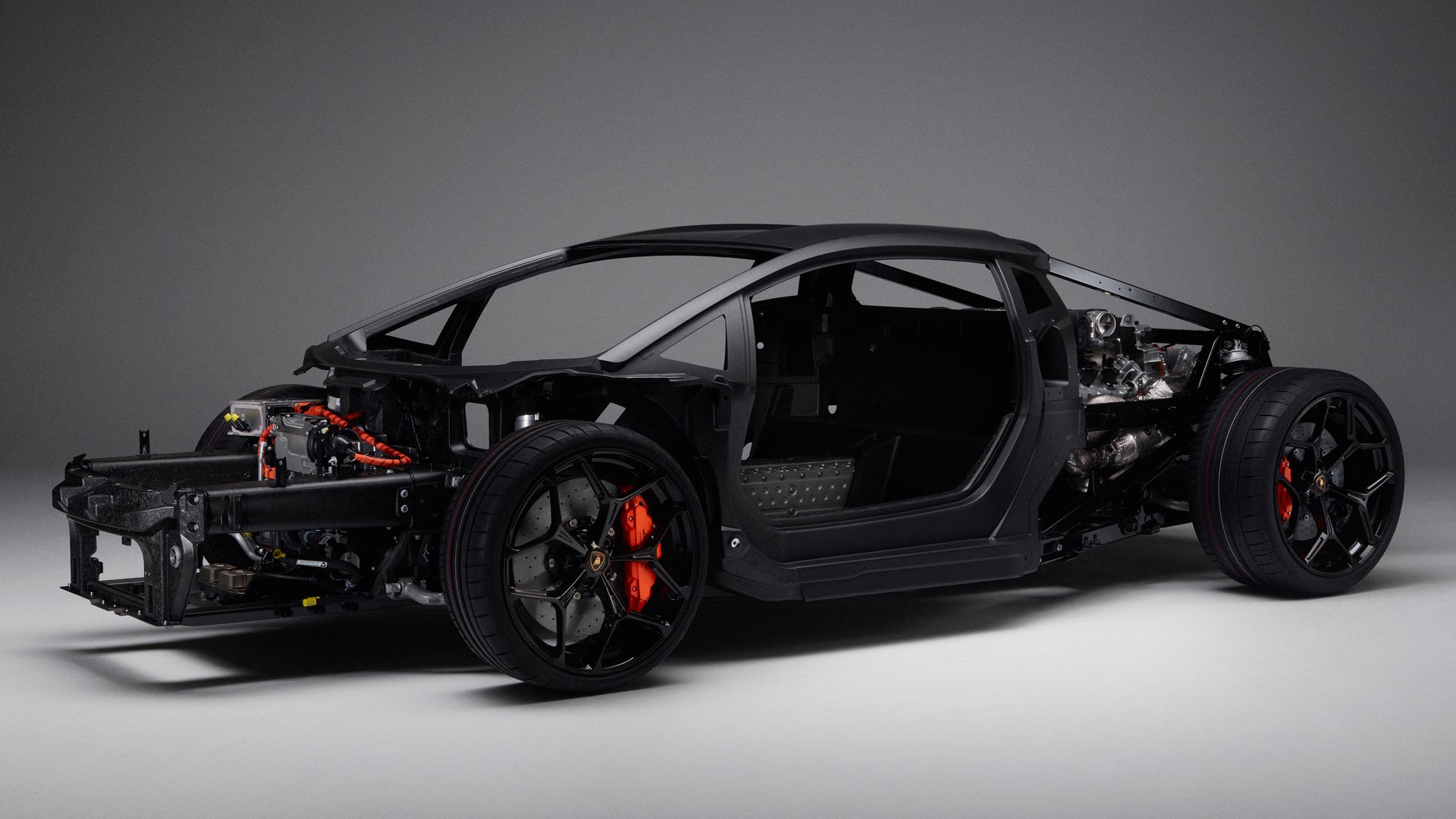One of the most frustrating things about any DIY project is to be caught without the one socket that you need and don’t have (why is it always the 10mm?). Wasted time searching high and low and then yet another trip to the hardware store means you’re putting everything on hold. Suddenly, what was a quick project turns into an all-day (or multi-day) ordeal. How do you avoid that? Preparation. And in your garage, you prepare by building a solid collection of sockets. Though we might not know what you already have to work with, we can fill you in on what can round out, or fully build out, your current collection and find the missing link for your soon-to-be bulletproof hardware.
Our Methodology
We can’t put our own hands on every item available. In these instances, we put our collective experience in journalism, research, and prior product testing to use to make our product picks. Items that are used by our own staff may get earnest endorsements as well, but we’ll never accept fees or bonuses to sell you stuff we’re not actually excited about. Affiliate revenue is always disclosed.
The Drive aggregates reviews and research from all over the internet to figure out which products are worth buying. We also put out shopping guides to help you understand how to assess the value of these things on your own. As our editorial cousins at Car Bibles say, “Knowledge is horsepower!”
Best Socket Set Reviews & Recommendations
Our Verdict on Socket Sets
If you’re looking for a rugged, dependable, and affordable socket set, my top pick has to be the Craftsman 27 Pc Sae Standard & Metric 3/8" Drive 6 Point Socket Set. It offers one 16-piece metric and one 11-piece standard, 6-point, deep-well socket sets for 3/8-inch drive ratchet, making this set very versatile.
If you’re in the market for a great value socket set that won’t blow your budget out of the water, consider the Tekton 3/8-Inch Drive 12-Point Impact Socket Set. It’s a comprehensive set that comes organized and stored in a heavy-duty carrying case for easy transportation.
What to Consider When Buying A Socket Set
As simple as sockets are, there are a few things you want to take into consideration before buying the first thing in front of you. There are a lot of things that separate the good from the bad and the “Oh, dear god, why!?” By reading into the following considerations, you can quickly narrow down your choices.
Types of Socket Sets
Not all socket sets are the same. You already know that, still, it’s a good idea to talk a little about the different types of socket sets. That way, you have a better idea of what you’ll run into out in the wild and can narrow things down even more.
Shallow/Deep-Well
Stating the obvious, shallow and deep-well sockets are two different animals. A shallow socket is shorter than a deep-well socket. Why? Shallow sockets are better suited for bolt heads. You can use a deep well socket to do the same job, but they may have an increased tendency to slip off because of the added length.
Deep-well sockets are used for a number of situations. The deeper body allows the socket to slip over nuts, with long sections of thread passing through them. They can also reach deeper into narrow passages or even over the bodies of spark plugs and other special components.
Impact/Hand Sockets
There is a difference between impact and hand sockets. To put it simply, impact sockets are used for impact tools, while hand sockets are designed for hand tools. Impact sockets are built to endure the massive forces created by impact tools, and hand sockets, often called chrome sockets, are not. Using chrome sockets on impact tools can lead to severe problems.
That isn’t to say hand sockets aren’t durable, though. They are made from hardened steel alloys, typically with chrome plating. This is a far harder material than is used for impacts, and it won’t flex nearly as much. That characteristic makes them ideal for hand tools and torque wrenches.
Standard/Specialty
What we’re referring to as standard sockets are those with traditional six and 12-point configurations. For the most part, that’s all you’ll need for doing routine maintenance on your vehicle. There are plenty of exceptions to that rule, though.
Many vehicles use specialty fasteners. Torx, external star, and internal hex are just a few examples of what you might come across. You will need special sockets to match them. There are also other specialty sockets you should consider for removing rounded/damaged hardware—RocketSocket 13-Piece Extraction Socket Set is a prime example.
Socket Set Key Features
Drive Size
We suggest that the first detail you look for is the drive size. This tells you right away if the set you’re looking for will work with the ratchet you have. In most cases, drive sizes will be 1/4-inch, 3/8-inch, or 1/2-inch. However, 3/4-inch, 1-inch, and even larger drive sizes do exist.
This detail is usually easy to hash out, and most sockets intended for automotive use will stick to the first three sizes mentioned.
Included Sizes
The next thing you need to be sure of is that the sockets will work for your application. Most vehicles work exclusively with metric fasteners these days, but that’s not a guarantee. Many domestic cars rely on metric and SAE sizes, and you don’t want to realize that halfway through a job. Being familiar with your car will take you a long way here.
Quality
Quality should be on the back of your mind at all times. Sockets are simple, and it doesn’t seem like much can go wrong. Trust us, that’s not the case. Manufacturers can fail to get the sizing just right, leave behind all kinds of defects, or simply use junk materials for construction. It’s a good idea to read into manufacturers before you buy. Take the time to see what names generally fit into your price range, then narrow it down from there.
Point Count
We’re not going to put on a front and pretend like you absolutely cannot use 12-point sockets on six-point fasteners. We do it all of the time, and it works out just fine—mostly. Those 12-points do make it easier to slip a socket onto a 6-point socket in many situations.
It isn’t the right tool for the job, though. The best practice is always to match the point count of your sockets to the point count on the fastener. This will ensure you have the best fit possible, making a major difference under high load.
Socket Set Brands To Know
Husky
Founded in 1924 in Milwaukee, Wis., Husky is currently the house brand of Home Depot. Specializing in hand tools, pneumatic tools, and tool storage options, the company has made a name for itself as a dependable and high-quality manufacturer.
Craftsman
With its debut in 1927, Craftsman found a loyal following among professionals and DIYers alike. The company is well-known for providing tools with superior quality and reliability at a middle-of-the-road price point. Today, Craftsman is a globally reaching brand with tools in nearly any shop in America.
DeWalt
Ever since Raymond DeWalt perfected his first woodworking machine in 1922, the company has been an industry leader. Since 1924, the proudly USA-based company has been diversifying and widening its portfolio to become known as an innovator of safer, more powerful, and more efficient tools.
Socket Set Pricing
You can get a good-quality socket set for as little as $20 to $40. Sets in this price range are usually basic sets that don’t include drive tools, like ratchets or extension arms. They’re usually constructed from corrosion-resistant chrome-vanadium steel with chrome plating for added durability. For $50 to $100, you can get a more comprehensive set that offers a wider variety of socket sizes and accessories. Lifetime warranties and rugged carrying cases will also be included in your purchase in this range. For over $100, you will find specialty sets and socket sets that include all the bells and whistles to ensure you’re never left high and dry scrounging for the one size you need but don’t have.
Tips and Tricks
As with something you do for decades upon decades, you pick up a few tips and tricks along the way in terms of selecting the right product, and/or using it. That’s the case with us and socket sets. To help you bridge the information gap, here’s a selection of what we’ve learned along the way.
- Always buy a more extensive socket set than you think you’ll need. Even if it covers all of the faster sizes you typically run across, there are those oddballs that will ruin your day. Go with the bigger set to be safe.
- It’s a good idea to buy socket sets from the same brand that made the tools you own and stick with them for future investments.
- Take the time to research the warranties. Figure out what works for you and go with that. Otherwise, you can be caught off guard by a warranty that doesn’t work quite as well as you’d expect.
FAQs
You’ve got questions.The Autance has answers!
Q: What size socket set should I get?
What size of set you should consider depends on a few factors. If you’re just starting out, or have multiple applications to work between, it’s best to go with a larger selection. You might even consider a large mechanic’s tool set. Otherwise, you can work with smaller sets. Our advice is to think about what the most common fastener sizes are for your application and find a set that covers those at the very least.
Q: What's better: 6-point or 12-point sockets?
Neither. They're designed to work with 6-point or 12-point fasteners, so you can consider them equal. However, you will most likely encounter 6-point fasteners, making them the clear choice for most situations. 12-point sockets will work fine on 6-point fasteners, but they won't have much contact and are more likely to slip. Still, people often use them anyway because that's not very likely under normal circumstances.
Q: What's the difference between impact sockets and hand tool sockets?
There are quite a few things that separate impact sockets from hand tool sockets. Primarily, it’s down to their hardness. Hand sockets are usually made from much harder materials than impacts. That does boost durability, but the hardness doubles as brittleness under impact forces, and the sockets may crack or shatter when used on impact tools.
Q: Should I just get impact sockets?
It might not be a bad idea to just buy impact sockets if you use both impact and hand tools as they are compatible with either. Impact sockets are much thicker than hand sockets, though. Even if by only a few thousandths of an inch, that can create clearance issues in the right circumstances. If you use both impact tools and hand tools, you should buy impact and hand sockets.
Q: Will chrome sockets rust?
Chrome plating is used on sockets because it doesn't rust. So long as you buy from a reputable supplier, you shouldn't have this issue. Some low-quality brands might use something else as a substitute to replicate chrome, or the plating quality might be questionable, which will likely lead to the tools rusting up.









